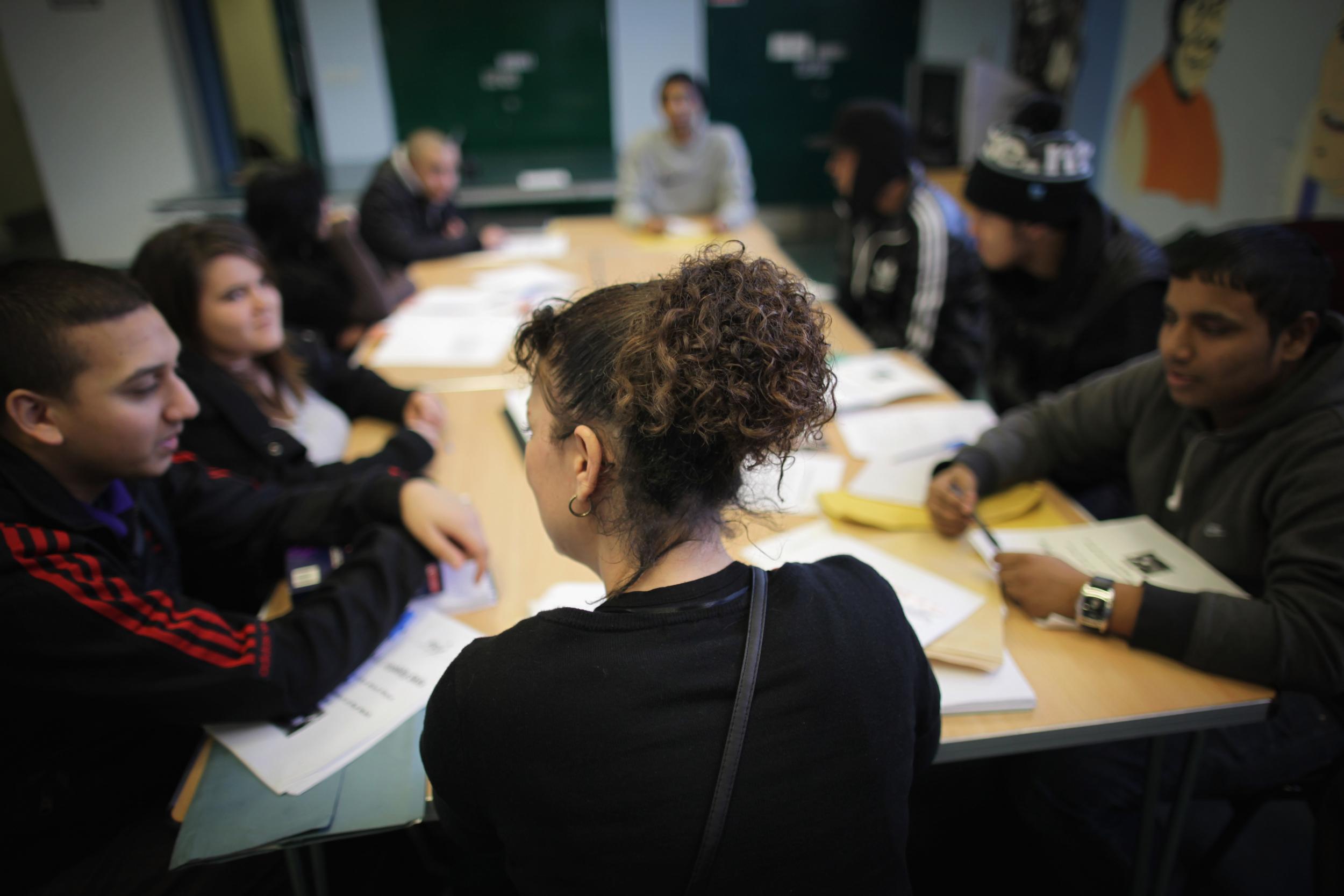Number of 'Neets' in Britain decreases for the first time this year
There are 20,000 fewer young people not in education, employment or training

Your support helps us to tell the story
From reproductive rights to climate change to Big Tech, The Independent is on the ground when the story is developing. Whether it's investigating the financials of Elon Musk's pro-Trump PAC or producing our latest documentary, 'The A Word', which shines a light on the American women fighting for reproductive rights, we know how important it is to parse out the facts from the messaging.
At such a critical moment in US history, we need reporters on the ground. Your donation allows us to keep sending journalists to speak to both sides of the story.
The Independent is trusted by Americans across the entire political spectrum. And unlike many other quality news outlets, we choose not to lock Americans out of our reporting and analysis with paywalls. We believe quality journalism should be available to everyone, paid for by those who can afford it.
Your support makes all the difference.The number of young people not in education, employment or training has decreased for the first time this year with a drop of 20,000, according to official estimates.
The new statistics from the Office for National Statistics (ONS) show that the proportion of so-called ‘Neets’, aged 16 to 24, has decreased from the previous quarter and is down by 78,000 from a year earlier. The total number of Neets now stands at 843,000.
The population of Neets in Britain has been falling steadily since June 2011 but had rose slightly in the previous two quarters. The percentage of all young people in the UK who are now classified by government officials as Neets stands at 11.3 per cent - a decrease of almost one per cent on the previous year.
The new statistics show a slight rise in unemployment among young people. The ONS measures unemployment from young people without a job who have been actively seeking work within the last four weeks and are available to start work in the next two weeks. From April to June 2016 there were 390,000 unemployed young people - up 9,000 from the previous quarter. The annual trend, however, is more positive: there are 41,000 fewer young people unemployed from a year earlier.
The number of economically inactive young people - who have not been seeking work within the last four weeks - is down 31,000 on the previous quarter to 453,000. Of these, according to the ONS, 274,000 were women and 179,000 were men.
Professor Geraint Johnes, director of research at the Work Foundation, told The Independent: “The figures are driven by a reduction in the number of 18-24 year olds who are economically inactive. These fell by more than 30000 over the quarter. Unemployment amongst the young age groups has actually risen over the quarter, and amongst 16-17 year olds, the proportion who are Neet has risen."
He added: "The fall in the proportion of 16-24 year olds who are Neet continues a downward trend that has been in evidence since the series peaked in 2011. It mirrors the rise in employment and fall in unemployment that we have seen for the population at large.
"While the overall unemployment rate, at 4.9%, is now quite low, there remains slack in the labour market..In this respect, it is not surprising that labour market indicators have continued to improve – though the recent falls in both business investment and confidence might present a challenge in the months ahead.
"The latest available data on apprenticeship starts suggest that there has been a bit of an uptick amongst the 25 and younger age group – though the data on this aren’t recent enough to explain what’s happened over the most recent quarter.”
Join our commenting forum
Join thought-provoking conversations, follow other Independent readers and see their replies
Comments